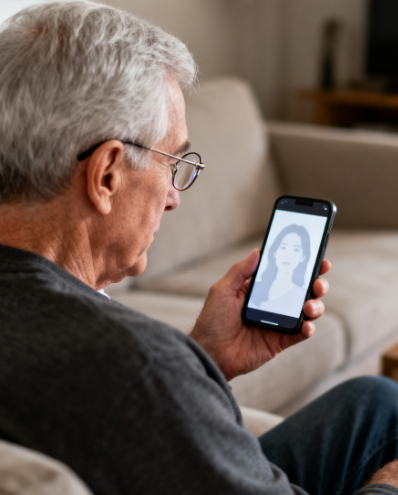
You’ve been together for years—maybe even decades. You’ve built a life, a home, a family. You know their coffee order, the way they hum when they’re concentrating, and the story behind that faint scar on their left knee. You share bank accounts, a mortgage, and the remote control.
But there’s one small, digital fortress that remains off-limits: their private, locked social media account. You’ve seen them type the password quickly, deftly, shielding the screen with a casual hand. It’s the one corner of their life that seems to be for their eyes only. And if you’re being honest, it nags at you.
What if the password, the key to this last secret garden, is the name of an old flame? A college sweetheart? A coworker they’ve always been a little too friendly with?
The temptation to find out grows, fed by late-night worries and the terrifying silence of a sleeping house. One day, while they’re in the shower, you sit before the glowing screen, your heart hammering against your ribs. You try the obvious: their birthday, your anniversary, the name of your first pet. Nothing.
Then, you think back. You remember the stories they’ve told, the people who shaped them long before you arrived. You think of the name they mention with a particular, soft fondness. The one that belongs not to a romantic rival, but to a person from a chapter of their life that seems sacred.
You type it in. The name of their childhood best friend who moved away in the seventh grade. The one who taught them how to skip stones and with whom they built a treehouse. The friend who was killed in a car accident at sixteen.
The screen unlocks.
And as you scroll—with a guilt that is instantly washed away by a wave of overwhelming love and sorrow—you don’t find flirtatious messages or evidence of a double life. You find a digital memorial.
The account isn’t a diary of secret desires; it’s a time capsule of grief and enduring love. It’s filled with old, scanned photos of two grinning kids with scraped knees. There are posts on the anniversary of the accident, simple messages like: “Miss you every day, buddy.” There are pictures of your partner, as an adult, visiting the old treehouse, or sitting by a graveside, having a one-sided conversation with their oldest friend.
The real password to your partner’s private social media account is the name of the person they lost too soon. It’s the key to a room in their heart they keep locked not to hide something from you, but to protect a sacred, painful, and precious part of themselves—the part that still loves and grieves for a friend who never got to grow up.
Logging out, you understand. This wasn’t a secret kept from you; it was a sanctuary. And in that moment, you don’t feel suspicion or jealousy. You feel a profound sense of protectiveness for the person you love and the memory they carry so carefully. You realize that true intimacy isn’t about knowing every password, but about respecting the rooms in someone’s heart that are meant to be visited only with the utmost care, if at all.